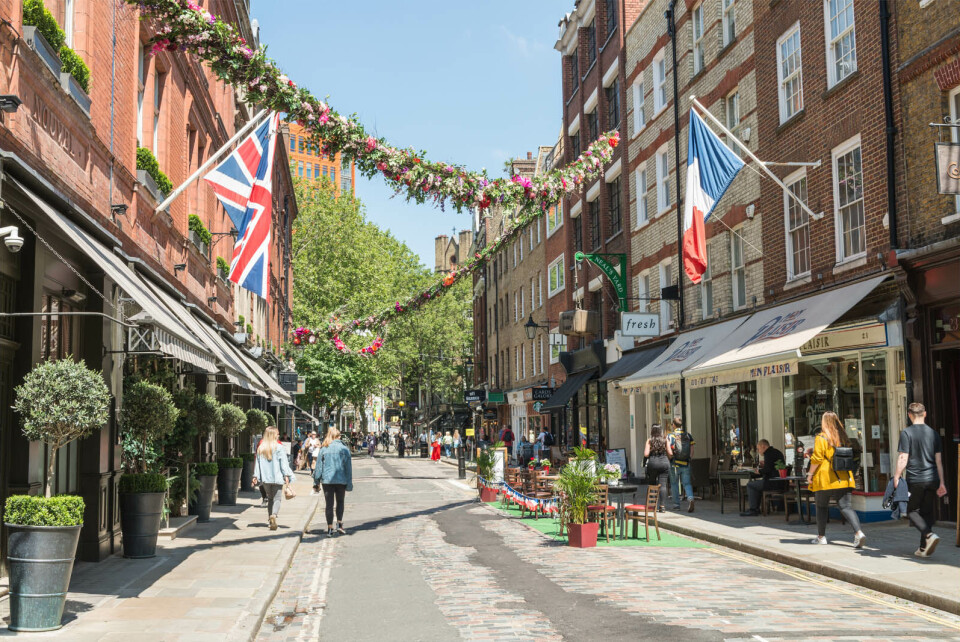-
New Paris-Jersey direct flight to launch this summer
Loganair route forms part of Channel Island’s tourism boost plan
-
Death of right-wing protester in Lyon sparks fears of further political violence
Quentin D, 23, died after reportedly being ambushed by far-left activists near site of political conference
-
Red flood alerts continue in south-west - and more heavy rain expected
Garonne river is particularly affected. French weekly weather forecast February 16 - 20
Brexit means new hassles for French living in the UK
Christèle Biganzoli, founder of fintech firm ritchee, explains the difficulties that French people are facing in the UK after Brexit

Brexit has affected the lives of Britons in France – but also those of the French in the UK.
Christèle Biganzoli, founder of fintech firm ritchee, which gives financial advice to the French abroad has the UK as one of the top three destinations for them.

She said many in the UK at the time of the Brexit vote were very worried and returned immediately to France.
This mostly concerned some 20% – around 130,000 – who were living outside London and felt more isolated. Out of those, perhaps 15-30% went back to France, she said.
“At work, they felt like people looked on them as immigrants, not colleagues, and they were afraid. The deals were slow in coming and they didn’t know how things would work out.”
The French mostly feel more reassured today, she said, and most have secured residency and healthcare rights.
Those still looking at returning now are more influenced by the pandemic and wanting to be closer to families.
“However, the lives of those who stayed in the UK are changing,” she said. For example, from October they can no longer come and go with their French identity card, and visas will be required for long stays.
“You will have to prove a certain level of studies, language skills, and an income of at least £26,500, which excludes young people who used to come in the wine and restaurant sector.
“The aim is to have an American-style immigration and only take high-flyers, but I think in the future, depending on the birth rate in the UK, there will be a lack of workers if that is maintained.”
Just like British residents with second homes in France, the French in the UK will have to use a fiscal representative if they are selling a French property and pay higher social charges on capital gains or rents.
“It’s a pain in the neck,” Ms Biganzoli said. “And there aren’t many fiscal reps, because it involves a lot of responsibility.
“A capital gains tax exemption when they sold their former main home in France also no longer exists.
“Plus, if they have British shares in French share savings plans [PEA], they have to get rid of them. I am sure there will always be French people who want to move to the UK – it’s a country we’re attached to and many also want to reinforce their English language skills – but all this does not help.”
Ms Biganzoli cited the cost of visas as another problem, especially for students who can no longer use Erasmus and will have to pay £348. “It’s a tragedy, because it opened people’s minds and today’s students became tomorrow’s expatriates.
“There were many exchanges with UK universities, which will now be harder to maintain.”
She has heard of saucisson sandwiches or cheese being confiscated on the way back from France. “Import-export is affected, including buying clothes from France, as there are customs declarations and extra tax.
“Also, there will be customs declarations when you move home, with tax if it’s a second home, and there are new costs and paperwork when you travel with your pet back to France.”
One “surprising” aspect is that there is no restriction on transporting edible snails.
“Snails don’t seem an indispensable food to me. I know the British see us as snail-eaters but if you ask a young French person not many will have tried it.
“Overall, though, I think the French in France and the UK feel very sad to see the UK leave the EU, because it is a country we are fond of. We feel closer to the British than, for example, Lithuanians, an EU country.”
Related stories
Second wave of Brexit issues on way, says French think-tank expert
New start in Franco-British relations needed, says region president
























